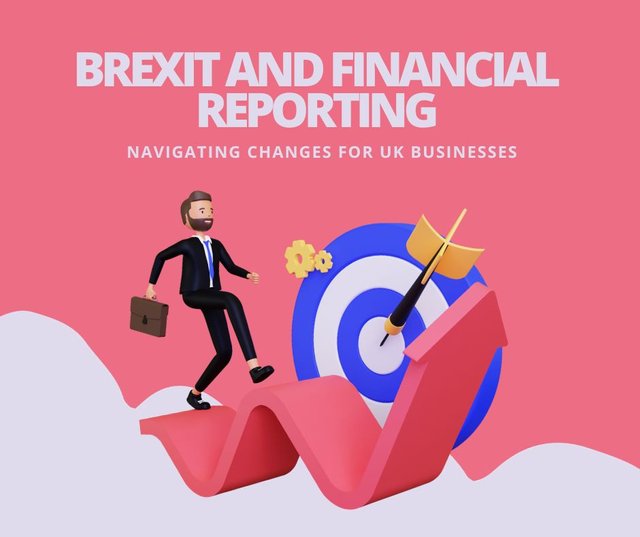Brexit and Financial Reporting: Navigating Changes for UK Businesses

The monumental shift of Brexit has reverberated across all facets of the UK economy, including financial reporting for businesses. As the landscape of trade and commerce undergoes transformation, so do the requirements and regulations governing financial reporting. In this article, we will delve into the implications of Brexit on financial reporting for UK businesses and explore how adept accountants are aiding enterprises in acclimating to these changes.
A New Regulatory Landscape
Brexit, marked by the UK's withdrawal from the European Union, has ushered in a new era of autonomy in economic policy. This includes financial reporting standards, which were previously harmonized with EU directives. With the UK now setting its own course, businesses must adapt to a distinct set of reporting requirements, necessitating a nuanced understanding of the evolving regulatory landscape.
Transitioning from IFRS to UK GAAP
One of the significant shifts brought about by Brexit is the transition from International Financial Reporting Standards (IFRS) to UK Generally Accepted Accounting Principles (UK GAAP) for some businesses. While many large enterprises continue to adhere to IFRS, certain SMEs and non-listed companies have migrated to the UK GAAP framework. Accountants play a vital role in ensuring businesses understand and implement the appropriate reporting standards, enabling accurate and compliant financial statements.
Navigating Currency and Exchange Rate Fluctuations
Brexit has introduced increased volatility in currency markets, impacting businesses engaged in international trade. Fluctuations in exchange rates can have profound implications for financial reporting, affecting areas such as revenue recognition, asset valuation, and financial statement translation. Accountants adeptly navigate these complexities, employing advanced accounting techniques to mitigate risks and ensure accurate financial reporting.
Addressing Customs Duties and Trade Tariffs
The reconfiguration of trade relationships post-Brexit has introduced new customs duties and trade tariffs. For businesses engaged in cross-border commerce, these levies represent significant financial considerations that must be accounted for in financial reporting. Accountants work closely with businesses to accurately capture and disclose these costs, providing a clear picture of the impact on the bottom line.
Enhanced Emphasis on Disclosures
Brexit-induced uncertainties have amplified the importance of robust disclosures in financial reporting. Transparency regarding potential risks and uncertainties stemming from Brexit-related factors is paramount. Accountants assist businesses in identifying and articulating these disclosures effectively, providing stakeholders with the information they need to make informed decisions.
Adapting to Evolving Regulatory Changes
The post-Brexit financial landscape is not static; it continues to evolve. Accountants are at the forefront of staying abreast of the latest regulatory updates and changes, ensuring that businesses remain in compliance with shifting reporting requirements. Their expertise provides a crucial buffer against non-compliance penalties and facilitates seamless adaptation to emerging financial reporting standards.
Conclusion
Brexit has ushered in a new era for UK businesses, accompanied by a transformed financial reporting landscape. Accountants, armed with their extensive knowledge and expertise, serve as invaluable partners in helping businesses navigate these changes. From transitioning reporting standards to addressing currency fluctuations and customs duties, accountants play a pivotal role in ensuring accurate, compliant, and transparent financial reporting. As businesses forge ahead in this new economic landscape, the guidance and support of adept accountants are more indispensable than ever. They stand as stalwart allies, enabling businesses to not only weather the changes but thrive in the post-Brexit era.